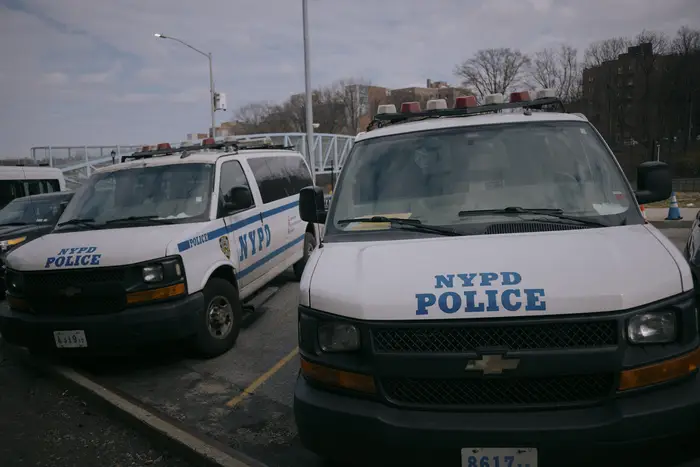UPDATE: Tragic reports confirm that two men have died in NYPD custody following their recent arrests for low-level offenses. The incidents have sparked outrage and renewed scrutiny over policing practices in New York City, particularly as the NYPD intensifies enforcement of minor crimes.
Musa Cetin, a 29-year-old Turkish citizen, was arrested in Midtown Manhattan for operating an unlicensed pedicab. Authorities report that he was discovered hanging in his cell just 15 minutes after a routine check at 8:20 p.m. on Friday. Despite being rushed to Bellevue Hospital, he was pronounced dead on Sunday after two days on life support. Cetin had recently sought asylum in the U.S., highlighting the complex realities faced by immigrants in the city.
Meanwhile, Christopher Nieves, 46, was taken into custody on Friday for allegedly stealing food from a Whole Foods in Williamsburg, Brooklyn. While awaiting arraignment, he reportedly suffered a medical episode around 10:15 p.m. that same night, leading to his untimely death. The causes of death for both men are currently under investigation by the Office of the Chief Medical Examiner.
These incidents unfold against a backdrop of rising arrests for low-level crimes in New York City. The NYPD’s focus on petty offenses like shoplifting has intensified, with over 14,000 arrests for petit larceny made in the first half of this year alone, placing the department on track to surpass last year’s record of 27,000 arrests. Critics argue that targeting “crimes of poverty” does not effectively mitigate crime rates but rather exacerbates cycles of incarceration.
NYPD Commissioner Jessica Tisch has emphasized that while she is not reinstating “broken-windows policing,” addressing minor offenses remains a priority under Mayor Eric Adams. Defense attorneys contend that these policies disproportionately affect vulnerable populations, including immigrants and low-income individuals. “If you have a client who is already part of an overpoliced immigrant population, what might normally be a simple stop could escalate into a significant legal issue,” noted Brian Ehrenpreis, a lawyer representing Cetin.
The emotional toll of these deaths is profound, with advocates arguing that policing cannot resolve the underlying issues of poverty, addiction, and mental health struggles. Arielle Reid, director of the Decarceration Project at the Legal Aid Society, stated, “Throw them in jail, but we don’t actually get at what is causing the underlying behavior.” This sentiment is echoed by many who believe that the current approach to crime is failing those most in need of support.
The NYPD is under pressure not only from rising crime rates but also from community advocates and legal experts who call for a reevaluation of policing strategies. As New Yorkers grapple with these tragic events, the conversation around public safety and justice reform is more urgent than ever.
Both deaths are now being reviewed by the NYPD’s Force Investigation Division, as the city faces mounting scrutiny over its law enforcement practices. The implications of these incidents could lead to broader discussions on policy changes aimed at addressing systemic issues in the criminal justice system.
As investigations continue, the community is left to mourn the loss of two lives, raising critical questions about the balance between law enforcement and the humane treatment of individuals caught in the cycle of poverty and crime. The public awaits further updates on these troubling developments, as the conversation around policing in New York City evolves.
